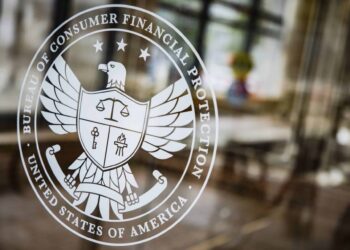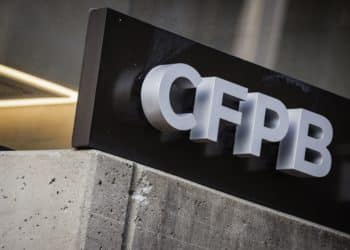The Plot Thickens: U.S. Court of Appeals to Hear CFPB Case

The CFPB’s administrative law judge (ALJ) accepted the agency’s rather novel application of RESPA (which conflicted with the longstanding interpretation utilized by the Department of Housing and Urban Development on which PHH had relied). The ALJ recommended PHH pay close to $6.5 million, but in his final order, CFPB Director Richard Cordray imposed penalties equaling $109 million. Not surprisingly, PHH appealed the director’s decision.
On Oct. 11, 2016, a divided three-judge panel struck down the director’s decision on both statutory and constitutional grounds. In other words, the court held that not only did the director get the law wrong, but that his status as the sole director of the CFPB was unconstitutional.
The remedy it chose for the constitutional violation was to sever the provision in the Dodd Frank Act the limits the president’s ability to fire the director only for cause (malfeasance, negligence, or inefficiency), and give the president power to fire the director at will. The dissenting judge agreed with the majority on the statutory findings, but argued that because PHH won on the law, it was unnecessary for the panel to have addressed the constitutional arguments.
The D.C. Circuit stayed its opinion — i.e., kept the status quo — to give time for the parties to further appeal. The CFPB petitioned the D.C. Circuit for a rehearing en banc, asking the full D.C. Circuit to rehear the case. Successful petitions for en banc rehearings are somewhat rare; court dockets are already jammed and judges generally trust their colleagues to get it right. But, occasionally, there is enough disagreement (or desire to make a point) that a sufficient majority of the judges on the circuit will vote to rehear.
That’s what happened here. By agreeing to rehear the case as a full court, the opinion of the three-judge panel was thrown out and the parties will reargue the case in front of the full court.
The court asked the parties to brief three questions:
- Is the CFPB’s structure as a single-director independent agency consistent with Article II of the Constitution and, if not, is the proper remedy to sever the for-cause provision of the statute?
- May the court appropriately avoid deciding that constitutional question given the panel’s ruling on the statutory issues in this case?
- If the en banc court, which has today separately ordered en banc consideration of Lucia v. SEC, 832 F.3d 277 (D.C. Cir. 2016), concludes in that case that the administrative law judge who handled that case was an inferior officer rather than an employee, what is the appropriate disposition of this case?
The first question is the critical question, and the answer is not at all clear. In many respects, it is an issue of first impression, i.e., one that the courts have not had to answer in the specific context presented, though I expect Director Cordray might disagree. Is a single agency director who cannot be easily fired by the president, and who is the final arbiter of that agency’s actions, subject to enough checks and balances to pass constitutional muster?
The majority of the three-judge panel said no. If the full panel holds otherwise, then PHH will have the opportunity to appeal that decision to the Supreme Court. If the full panel agrees with the three-judge panel, then it must decide what the proper remedy is. It could agree with the original decision of the three-judge panel and simply sever the “for cause” provision in Dodd Frank, keeping the CFPB intact but making the director an at-will employee. Alternatively, it could suspend the CFPB’s operations and leave it to Congress to fix, perhaps by replacing the director with a politically balanced commission via the Federal Trade Commission. Or it could do something in between. In the case of any of those decisions, the CFPB could appeal to the Supreme Court.
The second question the court asked the parties to brief is whether they even need to answer the constitutional question, since the question itself implies that the full apparently agrees with the three judge panel’s unanimous holding on the statutory issues in favor of PHH. There is a longstanding tradition in the federal courts to avoid answering constitutional questions unless absolutely necessary, so it would be a legitimate path to take. But the original panel thought it was necessary to address the question because it was going to have to remand the case back to the CFPB to be resolved in a manner consistent with its decision, and it reasoned it could not constitutionally remand a case to an agency it determined was unconstitutional in the first instance.
The third question is important, but a little more esoteric. The full court agreed to rehear the decision of a three-judge panel in a separate case — Lucia — addressing the constitutionality of using ALJs that are not appointed by the president or the federal courts. A finding that ALJs are unconstitutionally appointed inferior officers could potentially scrap the effectiveness of the CFPB’s administrative proceedings, calling into question a number of the CFPB’s actions and generally causing chaos.
It will be interesting to follow the briefs over the next several weeks and months, and to hear the arguments at the en banc hearing. There is a lot at stake here, and the answers are as clear as mud. Congress could moot the case by restructuring the CFPB as a commission, but the likelihood of that (or anything else) happening in Congress before oral arguments is very slim.
Whatever the outcome of the May 24 hearing, we’re almost assured we’ll see one party or the other ask the Supreme Court to weigh in on the constitutionality of the CFPB structure. That may be something the court wants to avoid, which would be a disappointment. Meaty constitutional questions like these are catnip for us legal geeks.
Michael Benoit is a partner in the Washington, D.C., office of Hudson Cook LLP. He is a frequent speaker and writer on a variety of consumer credit topics. Michael can be reached at 202-327-9705 or mbenoit@hudco.com. Nothing in this article is legal advice and should not be taken as such. Please address all legal questions to your counsel.














